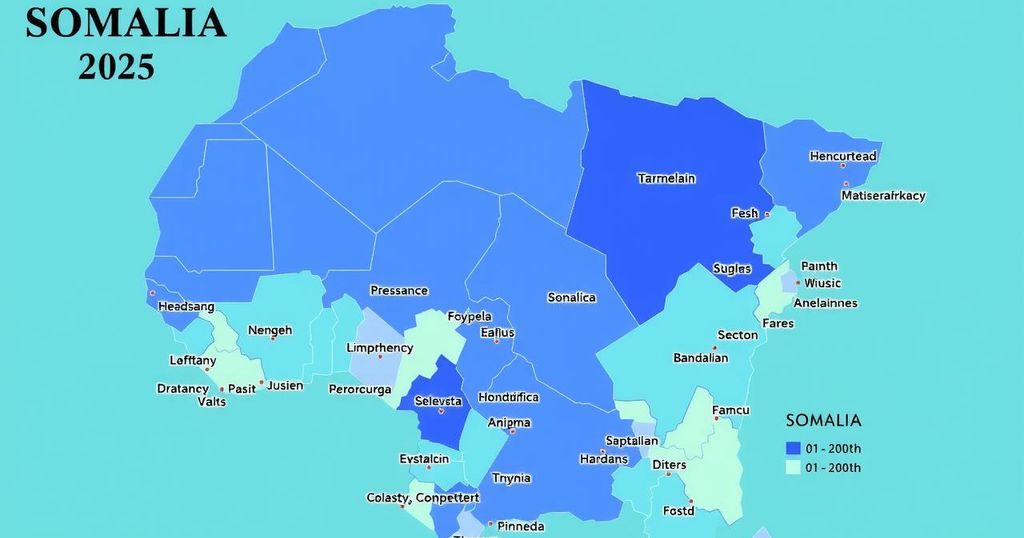Projected Multi-Hazard Displacement in Somalia for Q2 2025
In Q2 2025, Somalia’s HNRP will focus on 30 districts, with projections of 124,249 displacements. Key districts include Banadir, Baydhaba, Luuq, Kismaayo, and Afmadow, primarily affected by drought and conflict.
In the second quarter of 2025, Somalia is focusing on 30 districts as part of its Humanitarian Needs and Response Plan (HNRP). Notably, 11 of these districts are among the top 15 projected to experience the highest number of displacements during this period, totaling an anticipated 124,249 displacements.
The top five districts witnessing the most significant displacement are Banadir, Baydhaba, Luuq, Kismaayo, and Afmadow, accounting for 95,689 displacements, which represents 41% of the total projections. Specifically, Banadir is expected to see 39,251 displacements, reflecting a 4% increase, while Baydhaba is projected at 21,053 with a 3% increase. Luuq anticipates 13,098 displacements (12% increase), Kismaayo 12,862 (7% increase), and Afmadow 9,425, marking a substantial 19% increase.
The primary cause of these displacements is projected to be drought, although conflict will play a significant role, particularly in Luuq—where 56% of displacements will originate—and Afmadow, with 39% originating from that district.
To summarize, Somalia’s HNRP identifies key districts for humanitarian assistance in 2025, highlighting significant projected displacements driven mainly by drought and conflict. The districts of Banadir, Baydhaba, Luuq, Kismaayo, and Afmadow are critically impacted, showcasing the urgent need for targeted response efforts to address these humanitarian challenges.
Original Source: reliefweb.int




Post Comment